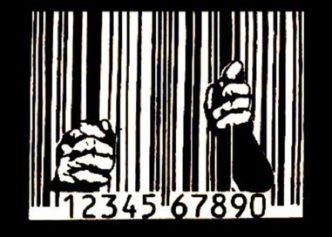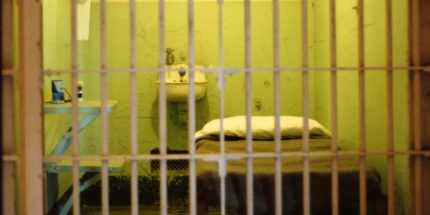Nearly 150 female inmates in California were sterilized by doctors between 2006 and 2010, recalling the ugly days of forced sterilizations of the poor, mentally ill and women of color that were a common practice in states like California until they were banned nearly 40 years ago, according to an article by the nonprofit Center for Investigative Reporting.
The doctors under contract with the California Department of Corrections and Rehabilitation were paid $147,460 by the state from 1997 to 2010 to perform tubal ligations on female inmates, suggesting that there were likely at least 100 more who had the procedure performed, according to state documents and interviews conducted by reporters for the Center.
The article by writer Corey G. Johnson said the women were signed up for the surgery while they were pregnant and housed at either the California Institution for Women in Corona or Valley State Prison for Women in Chowchilla.
The article says the doctors targeted those deemed likely to return to prison in the future, coercing them into the procedure.
Crystal Nguyen, a former Valley State Prison inmate who worked in the prison’s infirmary during 2007, told the Center she would often overhear medical staff asking inmates who had served multiple prison terms to agree to be sterilized.
“I was like, ‘Oh my God, that’s not right,’ ” said Nguyen, 28. “Do they think they’re animals and they don’t want them to breed anymore?”
Christina Cordero, 34, who spent two years in prison for auto theft and who gave birth to a son in October 2006, said while she was a Valley State inmate, Dr. James Heinrich, the institution’s OB-GYN, repeatedly pressured her to agree to a tubal ligation.
“As soon as he found out that I had five kids, he suggested that I look into getting it done. The closer I got to my due date, the more he talked about it,” Cordero said. “He made me feel like a bad mother if I didn’t do it.”
Though she agreed to the procedure, Cordero, released in 2008 and now living in Upland, said, “Today, I wish I would have never had it done.”
Heinrich, 69, told CIR he provided an important service to poor women who faced health risks because of multiple caesarean sections and he denied pressuring anyone. He said the $147,460 paid to the doctors was not much.
“Over a 10-year period, that isn’t a huge amount of money,” Heinrich said, “compared to what you save in welfare paying for these unwanted children – as they procreated more.”
Daun Martin, a licensed psychologist and the top medical manager at Valley State Prison from 2005 to 2008, said the surgeries were an empowerment issue for female inmates, giving them access to the same options as women on the outside.
Martin claimed that some pregnant women, particularly those addicted to drugs or who were homeless, would commit crimes so they could return to prison for better health care.
“Do I criticize those women for manipulating the system because they’re pregnant? Absolutely not,” said Martin, 73. “But I don’t think it should happen. And I’d like to find ways to decrease that.”
Martin said he didn’t approve the surgeries — although records show at least 60 tubal ligations were done at Valley State while he was in charge.
A half-century ago, forced sterilizations of prisoners, the mentally ill and the poor were commonplace in California until state lawmakers officially banned such practices in 1979.
There are federal laws that ban use of federal funds for inmate sterilizations because prisoners might feel pressured to comply. Although California used state funds instead, the procedure has required approval since 1994 from top medical officials in Sacramento on a case-by-case basis.
After a slew of lawsuits, a U.S. Supreme Court ruling and public outrage over eugenics and similar sterilization abuses in Alabama and New York, new requirements were instituted in the 1970s for doctors to fully inform patients. Since then, it’s been illegal to pressure anyone to be sterilized or ask for consent during labor or childbirth.
But that’s exactly what happened to Kimberly Jeffrey, who says she was pressured by a doctor while sedated and strapped to a surgical table for a C-section in 2010 at Valley State. She had failed a drug test while out on parole for a previous series of thefts.
A horrified Jeffrey, 43, resisted.
“He said, ‘So we’re going to be doing this tubal ligation, right?’ ” Jeffrey told CIR. “I’m like, ‘Tubal ligation? What are you talking about? I don’t want any procedure. I just want to have my baby.’ I went into a straight panic.”
Jeffrey’s official prison and hospital medical files, which she provided to CIR, show she rejected a tubal ligation offer during a December 2009 prenatal checkup at Heinrich’s office and a month later refused again after she arrived at Madera Community Hospital.
She said no one explained to her any medical justification for tubal ligation.
She said the experience still haunts her. She lives in San Francisco with her 3-year-old son, Noel, and regularly speaks to groups seeking to improve conditions for female prisoners and has lobbied legislators in Sacramento.
State prison officials “are the real repeat offenders,” Jeffrey said. “They repeatedly offended me by denying me my right to dignity and humanity.”


